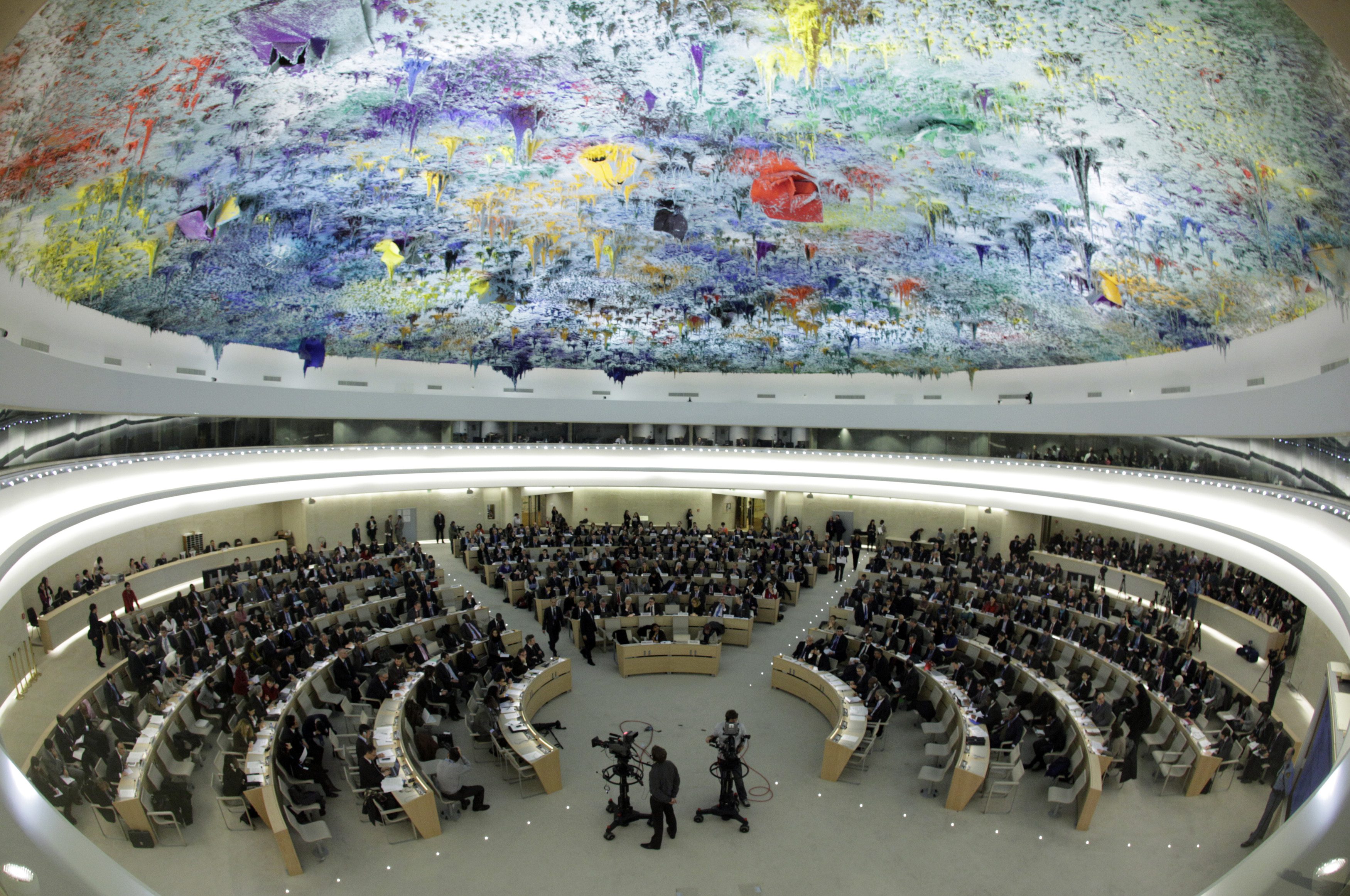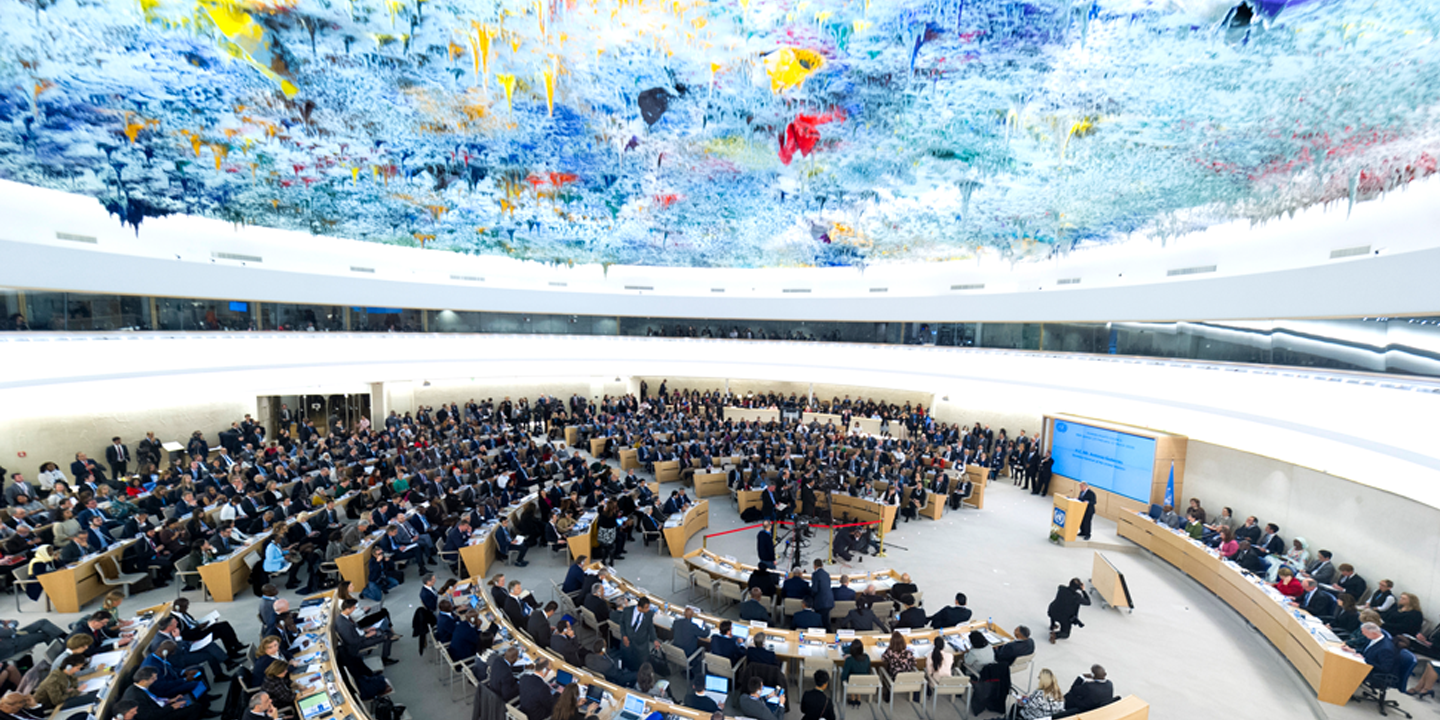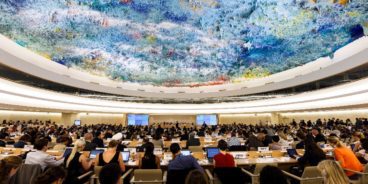

Statement delivered on behalf of the Group of Friends during the Interactive Dialogue with the Special Rapporteur on the promotion of truth, justice, reparation and guarantees of non-recurrence at the 51st session of the Human Rights Council
Mr. President,
I have the honor to deliver this statement on behalf of the Group of Friends of the Responsibility to Protect (R2P). A list of co-sponsors is available on the Extranet.
We thank the Special Rapporteur for his report on the role and responsibilities of non-state actors in transitional justice processes, which includes action-oriented gender sensitive and victim-centered recommendations for states and non-state actors.
The mandate of the Special Rapporteur is intrinsically linked to the Responsibility to Protect populations from genocide, war crimes, crimes against humanity and ethnic cleansing. By having regular dialogue with governments, identifying best practices and lessons learned, and by providing recommendations to strengthen the promotion of truth, justice, reparations and guarantees of non-recurrence, the Special Rapporteur plays a vital role in raising awareness of judicial and non-judicial measures that governments can and should take in the aftermath of atrocities.
Individual prosecutions of perpetrators, reparations for victims, truth-seeking and institutional reform contribute to seeking accountability and justice for atrocity crimes and other serious violations of international law. In addition, they may be instrumental in preventing the recurrence of atrocity crimes by building societal resilience, fostering reconciliation and healing, and restoring confidence in state institutions and the rule of law.
The majority of today’s atrocity situations around the world include, directly or indirectly, a diverse set of actors who are involved in violations of international law. The Special Rapporteur’s report on the role of corporations and businesses provides an important resource to better understand how the private sector may be involved in the design and implementation of policies leading to systematic violations and abuses of human rights. As highlighted in the report, a holistic assessment of actors benefitting from repression and violence is essential to effectively identify and address both economic and political drivers of conflict and atrocity crimes, can inform regulation for the private sector, and ensures that those responsible are held accountable, as appropriate, when complicit in the commission of atrocity crimes.
Today, the vast majority of conflicts are fought between governments and non-state armed groups, who often exercise effective control over territory and populations. In this regard, the Special Rapporteur’s analysis on the role of non-state armed groups in reparation, memorialization and truth-seeking processes provides an important framework for the wider human rights community to better understand conflict and post-conflict dynamics and the role of various actors in contributing to accountability and redress for victims.
As such, we would like to ask the Special Rapporteur:
“In your report, you outline the role and responsibilities of non-state actors in relation to the commission of atrocity crimes and transitional justice processes, and provide recommendations to governments and the private sector to ensure holistic accountability processes. How can the UN human rights system, including its mechanisms and procedures, strengthen measures to ensure that relevant actors adhere to their obligations under international law, and contribute to transitional justice processes?
Thank you.
Related Content

